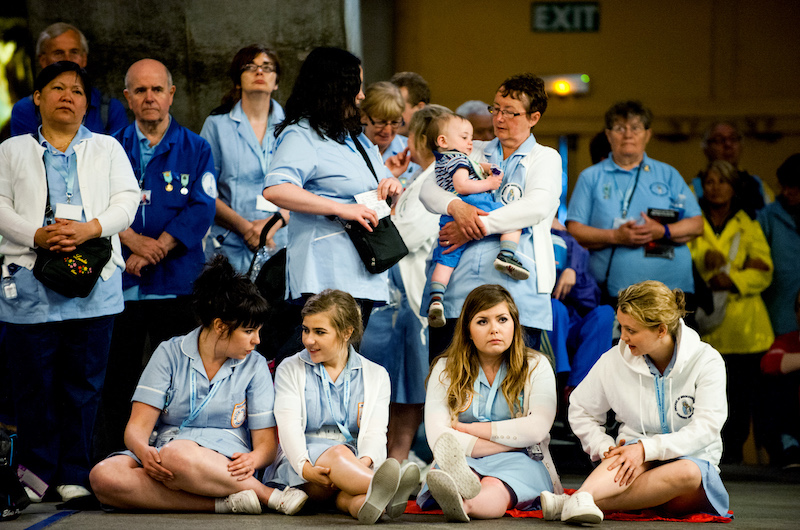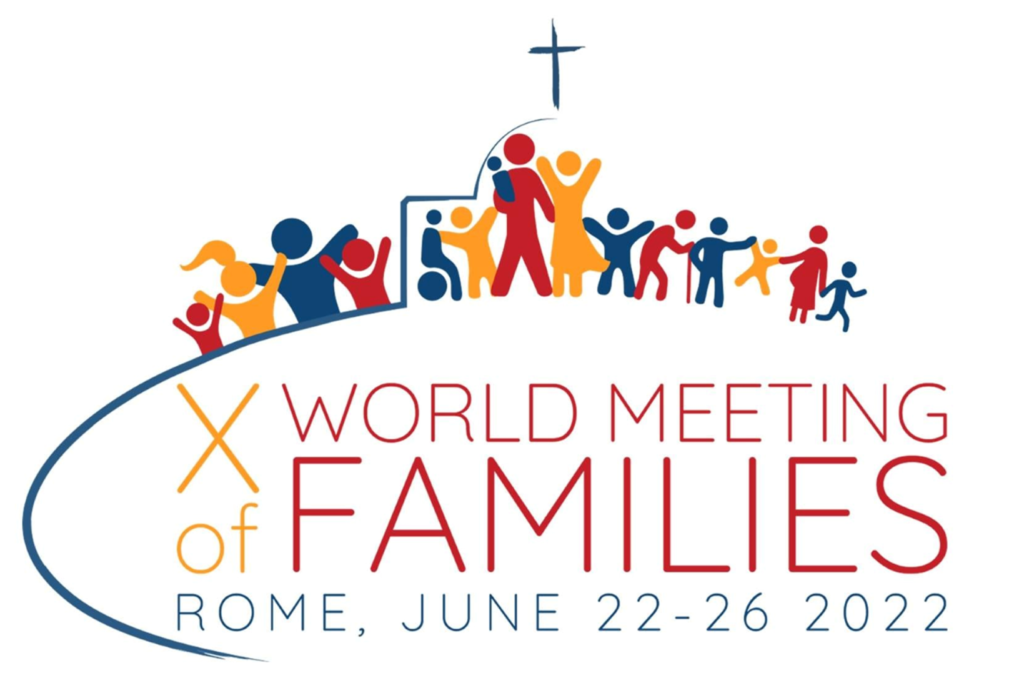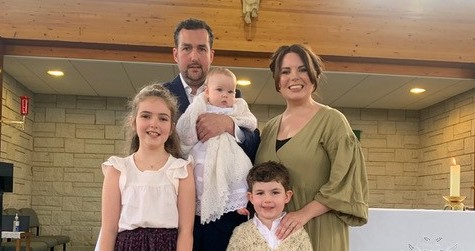The 10th World Meeting of Families (WMOF) is taking place in Rome this week.
Throughout the four days of the meeting, we’ve been publishing personal stories from people in our diocese who have different experiences of family.
Today, in our final article, we hear from the Nestor family, from Middlesbrough…
Family Love: A Vocation and a Path to Holiness
Our family life began 2010, when Peter and I were married, having first got together in 2004. We had met through our volunteer work in Lourdes and with the Middlesbrough Catholic Fellowship. Serving others through these Catholic organisations helped shape the way we best lived our faith together and also taught us what factors brought out the best in each other.
We welcomed our first child in 2013: Anisia (now nine), followed by Nathaniel, five, and Joachim, who has recently had his first birthday. We delighted in sharing opportunities to serve with our children and, before the pandemic, they especially looked forward to their annual pilgrimage to Lourdes. Despite so much of these experiences being hazy in their memories, some key aspects have managed to break through, including the music, processions, candles and Grotto, as well as the times shared with family and friends.
Now, all of this begins to paint a very rosy view of a Walton-like family but be assured we are far from it. When asking the children how we best show each other we love each other, they immediately talked about forgiveness and saying sorry. Don’t get me wrong, I’m delighted that such sentiments trip off their tongue so readily when talking about how we love each other, but let’s not gloss over the fact that the reason they are so well-versed is because before apologies and forgiveness comes conflict! Nathaniel is more like his mother, quick-tempered and loud in his complaints, whereas Anisia takes after her dad and deals with conflict with a quiet brooding – some might say sulking…
Our house is busy – school, work, ballet lessons, football matches, family events, parties, church, etc. Modern family life is crammed full and we often feel the stress of trying to fit everything in. It is these times we are often fraught with each other and from the outside, one might wonder where the love is. But the children articulate it best: “When Daddy cooks for us” (to be fair, he is an excellent cook), “When we curl up on the sofa and have a hug”, “You work hard to allow us to have and do things”. Unintentionally, they echo the words of Mother Teresa: “Do small things with great love.” Upon being asked, the children didn’t say they know they are loved because we take them on holiday or to lessons or buy them expensive gifts – instead, they know it is the love behind the day-to-day that ensures they feel held, secure, adored and safe.
And so it is with the fact that their first instinct, when talking about how we love each other, was about saying sorry, being forgiven and forgiving each other. In the small, everyday conflicts, they are surrounded by the language of reconciliation when saying sorry openly, honestly and in full view is crucial to moving on from the hurt of confrontation and conflict. The children know that they are not perfect – and nor are their parents, who are the first to demonstrate the act of apologising to them and to each other.
While we often lament the children having not had opportunity to explore that service we hoped would help to form them through Lourdes and the Fellowship, they certainly seem to know that the love behind the action is the most important thing.

In November, we lost the greatest example of service: my dad and the children’s beloved grandad. Dad was my hero. He was a lot of people’s hero. And the reason for this was because he was so capable and knowledgeable and intelligent, but he hid all of that behind his humility and desire to serve. Dad’s faith drove him to quietly support, comfort and act so that others were enabled so that they could not just participate but flourish. His death has been crushing and we are still reeling, learning how to see the colour in the world without him here to make it brighter. But to remain in that state of “grey” would do him a disservice.
Dad taught us that life is fulfilled when we live to serve others but not just for the sake of it. We do so because Christ is the first teacher of true service, and we are not people of faith without action. To quote Mother Teresa again, “It’s not how much we do but how much love we put into doing. It’s not how much we give but how much love we put into giving.”
And that’s why, after Dad died, we took the children to help us choose all the items for the hamper we would donate to CAUSE and Peter and I went to help deliver the hampers (something Dad had done for years). Because when our hearts were broken and we didn’t know what to do next, we went back to our roots, our basic instinct – to serve. Because when all felt lost and we were too angry with God to pray, we could still feel close to him – and to Dad – by “doing small things with great love”.
So how does family life demonstrate a vocation of holiness? You may, by now, recognise Mother Teresa as a great influence on our family but she says it best: “If you want to change the world, go home and love your family.” If our children learn that their acts of love-driven service within our home will give them the skills, confidence and conviction to serve their friends, community and global family as they go through life, we will consider our vocation complete and holy.

We will mark the end of WMOF with a Mass at the cathedral at 5pm on Sunday June 26, with Bishop Terry presiding.We recognise that travelling all the way to Middlesbrough may not be feasible for everyone, but we hope as many of you as possible will be able to come along to celebrate family life.
We hope each parish can send a “representative” family to reflect the diverse mix of families across our diocese.
Each family will be encouraged to bring a symbol to represent their experience of family life, and these will form part of the offertory procession.

